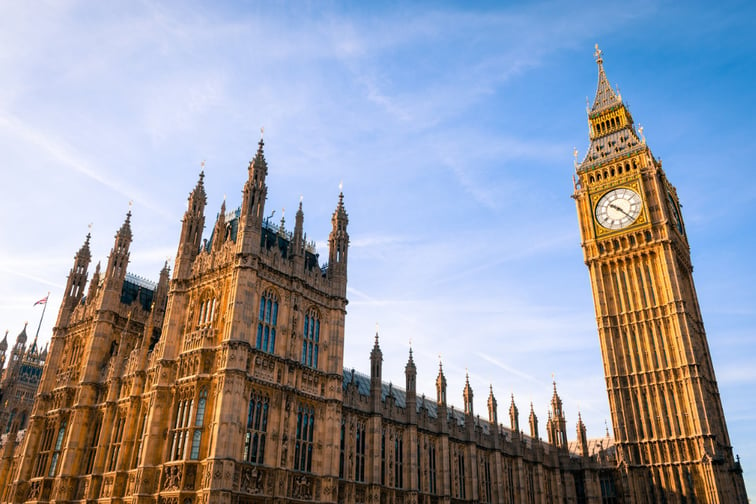

A 25-year-old woman was this year told by a manager to “wear trousers” to avoid “gropey men” at an insurance broking conference, MPs shared at a Treasury Committee inquiry hearing on Sexism in the City.
The revelation, branded “not acceptable” by insurance broking trade body the British Insurance Brokers’ Association (BIBA), came as financial services sector representatives faced a grilling on diversity and inclusion (D&I) progress, including on sexual harassment and gender pay and seniority imbalances.
The committee has claimed to have a ream of evidence, including anonymous testimonials, detailing incidents of sexism and sexual harassment across financial services workplaces.
“There's a horrible amount of direct sexual assault sexual aggressions, probably pretty criminal behaviour going on in some of these workplaces,” committee chair Dame Angela Eagle MP said during the Wednesday inquiry.
Appearing on the panel of financial services industry representatives, Yvonne Braun, director of policy, long term savings and protection and executive sponsor for D&I at the Association of British Insurers (ABI), which represents the interests of the insurance and protection sector but does not include insurance brokers among its members, faced questions around sexual harassment in insurance and the male manager’s conference clothing warning.
Braun described sexism in financial services and insurance as “bloody awful” and labelled findings that the male insurance boss had felt the need to warn a junior employee of sexual harassment risk as “unacceptable”.
At one point during the Wednesday proceedings, Braun asked for forgiveness after being checked by Caroline Nokes MP for using language that could be construed as minimizing the impact of sexual harassment, with Braun having said: “I'm not suggesting and suggesting that there's not still an awful lot of utter nonsense that happens.”
Braun later clarified to Insurance Business that as a “non-native” speaker, she frequently uses the word “nonsense” as a placeholder for potential profanity and that it in no way reflects how she views “shocking” and “intolerable” unwanted and unwarranted sexual advances.
Insurer staff members, who often attend insurance broking events including as sponsors and exhibitors and frequently host satellite hospitality events, should “think very carefully about the environment that they’re creating”, Braun told Insurance Business.
“If you, as a manager, have to say to your young staff, ‘gosh, you know, just watch out, leave early, because [attendees] get so drunk that you might have unwarranted and unwanted advances’ – I mean, it's the counsel of despair,” Braun said. “[What should ideally happen is] a conversation up the line that goes, ‘we don't like this environment, or we think it's against our duty of care to our staff to put them in a position where they might be propositioned, or whatever else’, and then there should be a conversation with the organisers of the conference.”
A spokesperson for BIBA, which represents around 1,800 regulated insurance brokers comprising of more than 100,000 individuals across the UK, told Insurance Business that it was unacceptable that a manager felt the need to warn the junior member of staff about sexual harassment risk at an insurance broker event.
“It is right to take seriously any evidence raised about inappropriate behaviour of any kind across the financial services sector and for action to be taken,” a BIBA spokesperson said. “It is not acceptable that any manager feels the need to warn any employee of what they should wear to avoid harassment.”
BIBA, which runs its own annual insurance conference that regularly attracts thousands of attendees, said it “welcomes” the Sexism in the City inquiry, with its team having been involved in some of the sessions.
“We support any activity that helps people to feel comfortable about raising any concerns they have about inappropriate behaviour, and this also translates across to any events we host,” the BIBA spokesperson said.
The spokesperson pointed to ESG and ED&I being a standing agenda item of all its board and advisory meetings and having an ESG main board director as examples of “practicing what we preach”. It further pointed to FCA and Prudential Regulatory Authority (PRA) efforts as having the potential to result in more inclusive behaviours.
BIBA has “not had any matters reported to us either during or since any of our events”, the spokesperson said.
“Ahead of BIBA conferences we are explicit in communications with our attendees about expected conduct, stressing the behaviours that will not be tolerated and which would result in appropriate action against anyone demonstrating such behaviour,” the BIBA spokesperson said. “We also make it very easy for anyone attending a conference to report any behaviour that they feel uncomfortable with.”
The insurance industry has previously hit headlines over sexism and sexual harassment in the City, with one insider having compared London’s insurance district to a “meat market”, Bloomberg Businessweek reported in 2019. That year, 8% of respondents to a Lloyd’s survey said they had witnessed sexual harassment in the insurance market.
Under increasing pressure, insurance industry participants and groups have moved to tackle sexism and sexual harassment, including through whistleblowing improvements, culture initiatives and, at Lloyd’s, a daytime drinking ban.
Other initiatives have been launched in a bid to cut down the gender pay gap, which sits at 23% for insurers according to the ABI, and achieve gender parity in senior leadership roles, with women now making up 32% of board positions and filling 29% of executive roles – a proportion described by Braun as still “pretty poor”.
Despite the metrics demonstrating some progress on gender balance, as of 2023 more than a third of insurance workers had witnessed discrimination in the insurance industry with drinking culture and excessive alcohol consumption adding to opportunities for perpetrators to commit harassment, a recent University of Nottingham study found.
